Search
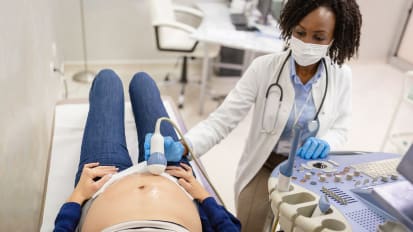 News
News
Abortion Ban May Increase Risk of Death for Pregnant Women with Cancer
The repercussions of overturning Roe v. Wade – and the failure of the Supreme Court to provide any guidance on exceptions related to the life and health of the mother – are potentially catastrophic for a subset of women who face a life-threating diagnosis of pregnancy associated cancers (PAC).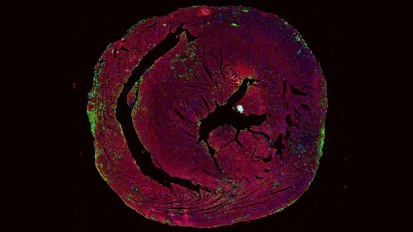 News
News
Research Leads to New Myocarditis Diagnostic and Treatment Strategies
Research conducted by Javid Moslehi, MD, chief of the UCSF Cardio-Oncology and Immunology Program, has led to the discovery of a new form of myocarditis caused by immune checkpoint inhibitors (ICI).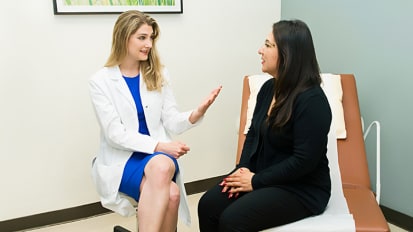 News
News
New Guidance for Ethical Urinary Incontinence Care for Older Adults
An International Continence Society working group led by UCSF urologist Anne M. Suskind, MD, MS, FACS, FPM-RS, recently published a white paper that provides an ethical framework for caring for older adults with urinary incontinence. News
News
Brachytherapy Improves Outcomes for Cervical Cancer Patients
Patients with locally advanced cervical cancer who receive chemoradiation therapy and brachytherapy and complete treatment within eight weeks have a superior overall survival rate compared to those who don’t receive this treatment, according to a UCSF study.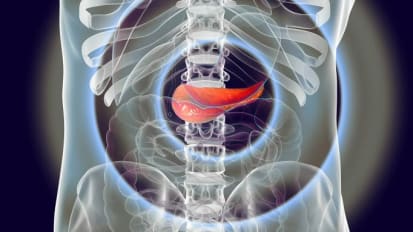 News
News
New Research Linking Type 1 Diabetes to Genetic Mutations May Lead to Precision Medicine
UCSF researchers have discovered specific genetic mutations that can cause type 1 diabetes. This groundbreaking work could result in effective precision treatments for patients.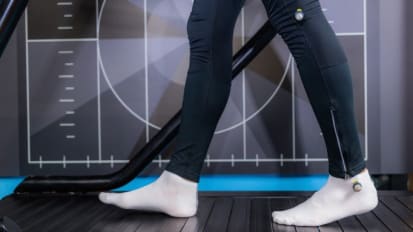 News
News
Artificial Intelligence and Wearable Sensors Put the Gait Lab in the Patient’s Pocket
UCSF orthopaedic surgeon Stefano Bini, MD, in collaboration with Google’s Advanced Technologies and Products (ATAP) division, is developing technology that will revolutionize how providers measure joint function and quantify joint disease. This groundbreaking approach uses cutting-edge machine-learning algorithms and data collected from inexpensive, wearable inertial sensors to accurately replicate gait lab outputs for a fraction of the cost of traditional methods, and in any context.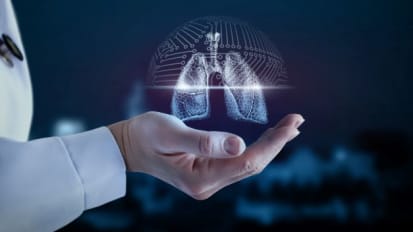 Video
Video
Lung Transplant Candidates: Shining a Light on UCSF’s Evaluation Process
In this short presentation, pulmonologist Jeffrey A. Golden, MD, describes how the specialists of the UCSF Lung Transplant Program work together to ensure their patients are likely to succeed, with a focus on factors that can make or break survival prospects. News
News
Renal Cell Carcinoma Research Sheds New Light on Advanced Disease
In a recent study, UCSF researchers found that renal cell carcinoma (RCC)with venous tumor thrombus(VTT) does not always signify metastatic disease with poor prognosis. These findings provide insight into the development of advanced RCC and may help to better inform surveillance regimens and treatment decisions and, ultimately, improve clinical outcomes. Document
Document
Electrophysiology and Arrhythmia Program
The UCSF Cardiac Electrophysiology and Arrhythmia Service is known worldwide for expert evaluation and treatment of patients with a variety of heart rhythm disorders.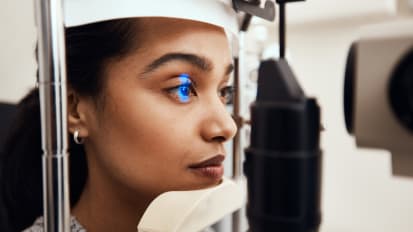 Video
Video
Focusing on Blurry Vision: Tips and Tools for Making the Right Diagnosis
From simple refractive issues to dry eye to age-related cataracts to emergencies such as retinal detachment, the causes of painless fuzzy vision vary widely in urgency.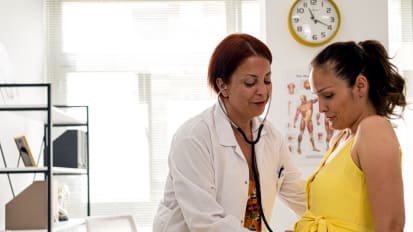 Video
Video
Abnormal Uterine Bleeding: A Guide to Causes and Solutions
In this straightforward talk, Tami Serene Rowen, MD, MS, FACOG clarifies how to distinguish abnormal from normal menses; breaks down the many reasons, both structural and hormonal, for the problem; and provides specifics on medical management – from doses to side effects – as well as surgical options and her favored techniques. Video
Video
Dry Days Ahead: Effective Strategies for Common Urinary Complaints
While stress incontinence and overactive bladder may not be life-threatening, they can be life-diminishing. Yet, with the stepped care approach presented by urologic surgeon Anne M. Suskind, MD, MS, FACS, clinicians can find a remedy to help almost any patient.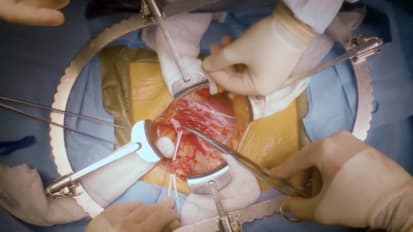 Video
Video
Living Donor Renal Transplant
In this narrated surgical video, Chris Friese, MD, performs a right laparoscopic donor nephrectomy.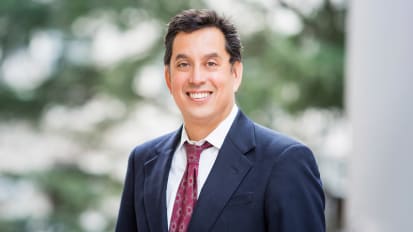 News
News
Renowned Pulmonary Disease Specialist to Lead UCSF Pulmonology Program
Prescott Woodruff, MD, MPH, a renowned leader in the pathogenesis and treatment of airway disease, has been appointed chief of UC San Francisco’s Division of Pulmonary, Critical Care, Allergy and Sleep Medicine. Prescott will assume the role of chief on July 1.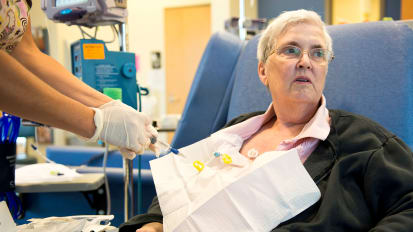 News
News
Novel Hyperglycemia Management Protocol for Patients Undergoing Cancer Treatment
An innovative hyperglycemia management protocol for patients receiving cancer therapy is provided through an urgent-care site within the UCSF Infusion Center, and can be replicated at other centers. The protocol ensures that patients promptly get the necessary treatment for acute hyperglycemia that can occur during cancer therapy. News
News
Seizures Stopped, Speech Preserved After Rare Auditory Cortex Tumor is Removed: A UCSF Case Study
The extraordinary success was made possible through research on the neural mechanisms of speech by Edward Chang, MD, UCSF neurosurgeon and chair of the Department of Neurological Surgery, and an advanced phase 2 surgical evaluation by the UCSF Epilepsy Center team.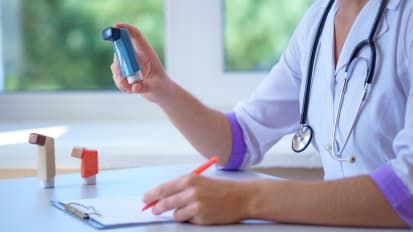 Video
Video
The COPD Blues: A Guide to Optimizing Outpatient Management
For the 30 million adults in the U.S. with COPD, effective care requires providers to have an up-to-date understanding of treatment options as well as the ability to respond to changes in a patient’s status. News
News
Renowned Expert to Lead UCSF’s Hematology and Oncology Division
Krishna Komanduri, MD, an international leader in hematology-oncology, transplantation and cellular immunotherapy, is the new chief of UCSF’s Division of Hematology and Oncology.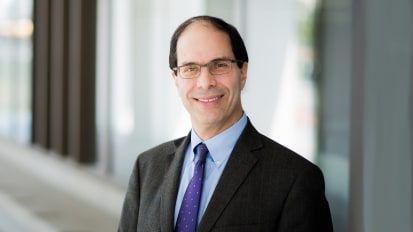 News
News
UCSF Prostate Cancer Specialist Inducted into Annual Class of “Giants of Cancer Care”
Eric Small, MD, has been announced as one of the winners of the 10th annual Giants of Cancer Care® awards.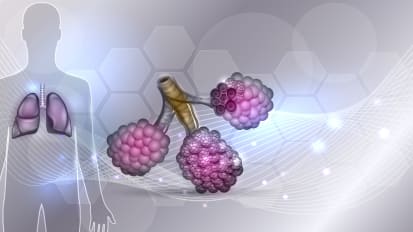 News
News
New Research on Cell Regeneration Shows Promise for Treating Lung Injury and Fibrosis
In a new study, UCSF researchers showed that they could successfully redirect profibrotic murine lung cells to a nonfibrotic state in which they regenerated alveoli. These findings could lead to novel treatments for lung injury and fibrosis.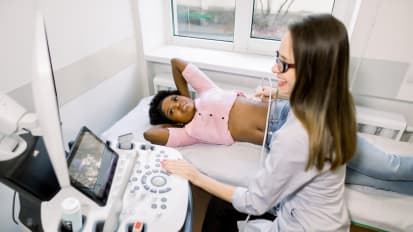 Video
Video
The Evidence on Incidentalomas: When to Investigate, When to Rest Easy
This presentation from radiologist Hailey H. Choi, MD, supplies straightforward criteria to help providers assess lesions ranging from thyroid and adrenal nodules to ovarian cysts to pancreatic and liver lesions. Video
Video
Approaching Endometriosis: Deliver the Right Care for Individual Patients
Gynecologist Jeannette Lager, MD, MPH, associate director of the UCSF Endometriosis Center, offers a thorough update on this painful condition impacting around 10% of U.S. women.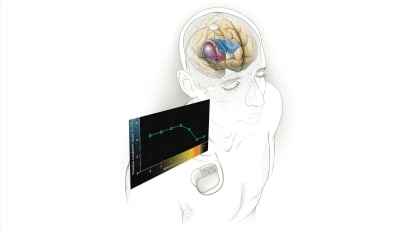 News
News
New Tinnitus Research Focused on Neural Networks Shows Promise for Precision Treatment
Using advanced neuroimaging, UCSF researchers are exploring the root causes of tinnitus and developing novel treatments for this potentially debilitating condition, which affects more than 50 million Americans. News
News
Genetic Gut Microbiome Variations Point to Precision Treatments for Metabolic Conditions
In a new study, UCSF researchers found that the gut microbiome of East Asians is distinct from that of White individuals living in the same geographic region. This discovery may lead to personalized treatments for various metabolic conditions, including diabetes and obesity.

